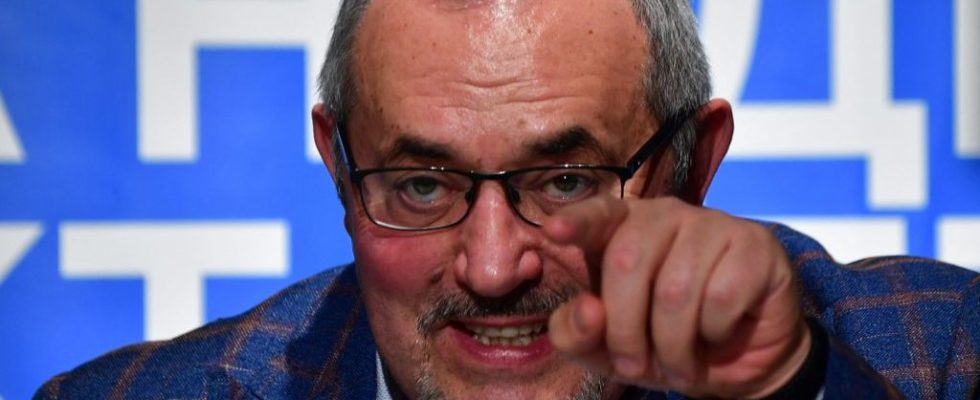In Russia, hope has a name. Boris Nadejdine, which comes from the root “nadejda”, which means… “hope” in Russian. Quite a symbol. The mathematics graduate today carries, in addition to his name, all the hopes of Russians opposed to the war and Vladimir Putin. Because of the seven candidates in the presidential election in March who will face the master of the Kremlin, he is the only one to criticize him. The only one to have passed the first ax of the electoral commission, on December 28.
He must now gather 100,000 signatures, to be validated by this same commission, to have a ballot in his name on March 17. In view of the lines of Russian citizens stretching in front of its offices, despite the snow and the police, there is hope. However, it is difficult to qualify him as a newcomer to politics, or even to place him radically in opposition to Vladimir Putin. Born in 1963 in Tashkent, Uzbekistan, Boris Nadejdine was elected municipal deputy in the Moscow region in the 1990s, then sat in the Duma, the Russian Parliament, from 1999 to 2003.
Independent and liberal
His career regularly places him in opposition, notably when he became advisor to Boris Nemtsov, assassinated in Moscow in 2015. But above all he is a solitary will-o’-the-wisp, an independent figure gravitating around the parties of the liberal right. Thus, he joined the Federal Political Council of the Just Cause party between 2008 and 2011, advocating a rally with the nationalists, which earned him the ire of the party leader, Mikhail Prokhorov. In 2016, he was at the top of the list of the Growth Party in the Moscow oblast, without joining this party in which he saw “no prospects”.
He has also at times moved closer to the spheres of power, offering to become Vladimir Putin’s authorized representative to appoint observers during the 2012 presidential election, then participating in a presidential party primary in 2015. Rumor has it that he also lends “a proximity with Sergei Kirienko, the number two in the Presidential Administration responsible for organizing the elections”, reveals for 20 minutes Jean de Gliniasty, research director at Iris and former French ambassador to Moscow.
“Puppet” or “brave man”?
This flirtation with the Kremlin also casts doubt on the sincerity of his candidacy. For some observers, Boris Nadejdine is seen as a straw opponent, allowing Russia to maintain the veneer of democracy, while Vladimir Putin’s victory is taken for granted. “I don’t think it’s a puppet. But if his candidacy is accepted, it is because the Kremlin sees it as a way to divide the liberal camp while increasing participation,” explains Jean de Gliniasty.
This is perhaps even why those in power let him be so critical. He thus denounces the war in Ukraine, calling it “a fatal error” by Vladimir Putin, wishes to establish a peace plan, get closer to the West and break commercially with China. A program in complete break with Putinian diplomacy, which makes him the “liberal on duty, a role that he assumes with panache”, believes Jean de Gliniasty. And given the insults he suffers, Boris Nadejdine is “a courageous man”.
It remains to be seen how long this little game will last. Even without representing a real political threat for Putin, Nadezhdine unites opponents of the war in Ukraine, silenced for two years. Before him, many dissenting voices had to go into exile, or found themselves in prison. He is also supported by an anti-war candidate who did not pass the first stage, Ekaterina Dountsova, the opposition journalist Alexei Venediktov, but also the ex-oligarch in exile Mikhail Khodorkovsky, the blogger Maxim Katz or still close to Alexeï Navalny. “It is unlikely that the Kremlin will validate his candidacy,” concludes Jean de Gliniasty. For the Russians, hope may be short-lived.

